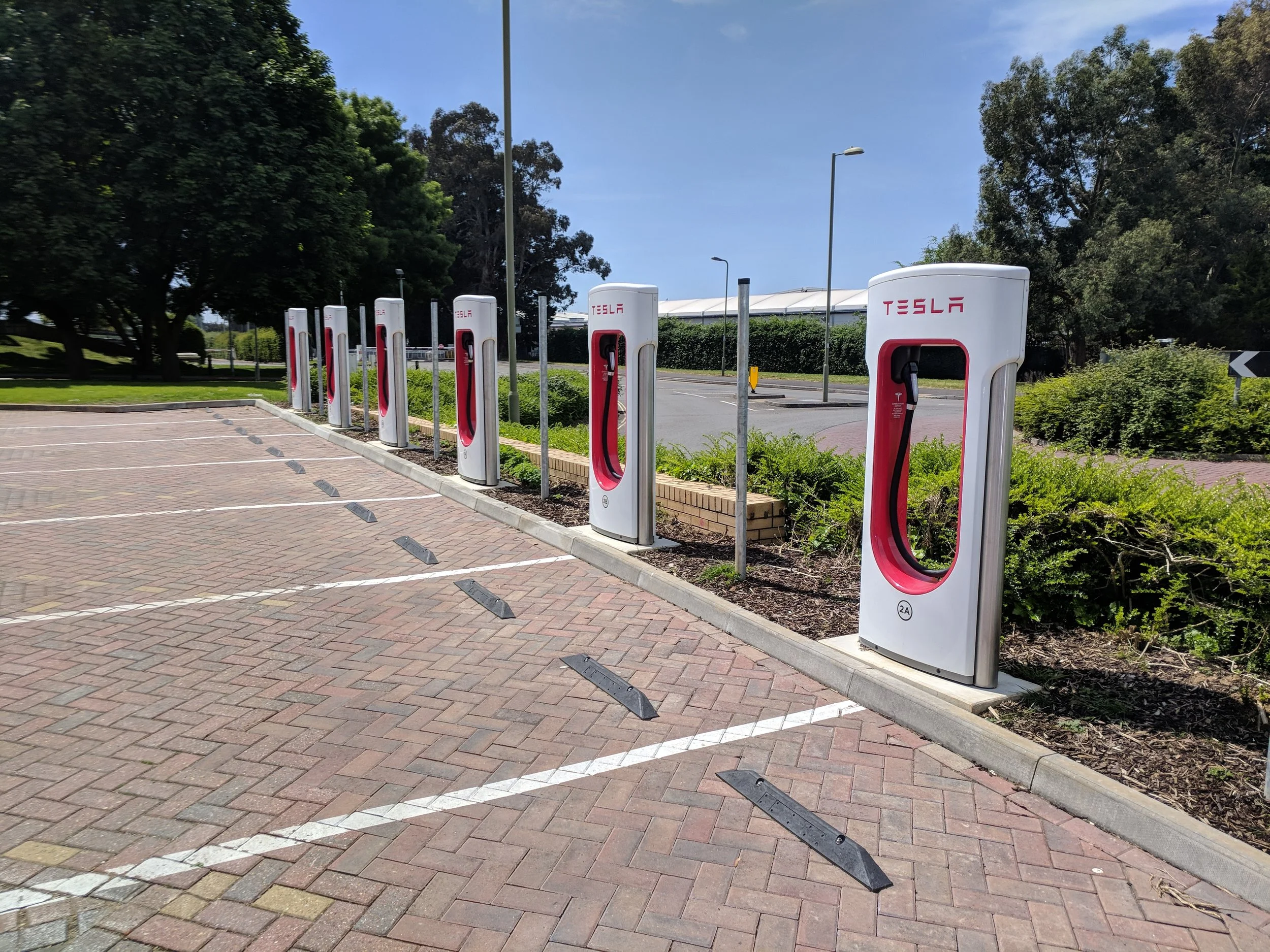Charging in...The plans to get a charger on a street near you.
Tesla superchargers at Langstone Technology Park. Image taken by James O'Toole
It's quite clear that the future of motoring doesn't include an internal combustion engine (or ICE as it is known on the electric vehicle scene) and it's looking more and more likely that electric vehicles will be the answer.
This is all well and good, but there is a bit of a caveat. Charging. Currently, Electric vehicles are only an option for those of us with driveways and a healthy bank balance. Many larger employers are helping by installing workplace chargers, which helps somewhat with the driveway issue, but it's still not a solution to solving the problem for the masses. It is straightforward enough to charge and electric car, as outlined in our charging guide, but how long will it take for a nation wide network to be ready to handle the ever growing number of electric vehicles.
Cue the news this week of a new government proposal addressing the charging problem. The Transport Secretary, Chris Grayling, announced the proposal in which the government should assess whether new build homes and offices should have charging points installed as standard. Great! Do I need to buy a new house as well as a new car? Not quite. The proposal also includes plans to install new street lamps with integrated charge points on suitable residential streets. The aim is to make recharging easier than purchasing petrol or diesel. That is quite a task.
Clearly, something needs to be done, but is this the best solution?
Could the solution be to add fast chargers to fuel stations that already exist up and down the country? As technology moves on, and charge times get quicker, this would surely be the most viable option. As you can see from our charge map, there is now more and more chargers being installed across the UK, and it is possible in the Tesla to map out a route then ensures you pass their superchargers in case you need a top up.
One thing that isn't being mentioned is the cost. Is the government going to run its own EV network and charge a reasonable rate per kWh? could we be seeing a privatisation nightmare? BP recently announced the takeover of Chargemaster, the UK's largest EV charging infrastructure, which signals their intent on being at the forefront of charging providers. Shell already own a major European charge network provider, New Motion, so I'm sure the rest will follow suit.
One thing for certain is that as the transition from fossil fuels to electricity increases, the government needs to replace the lost tax revenue. You probably won't need to buy a new house to charge your car either.

